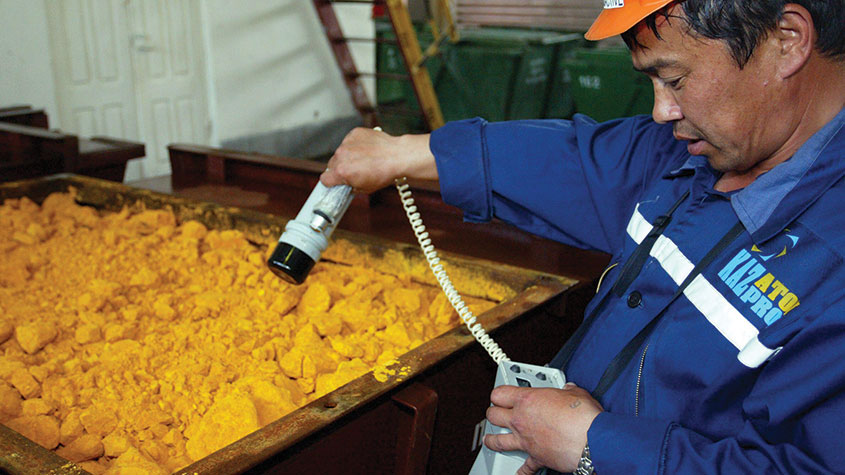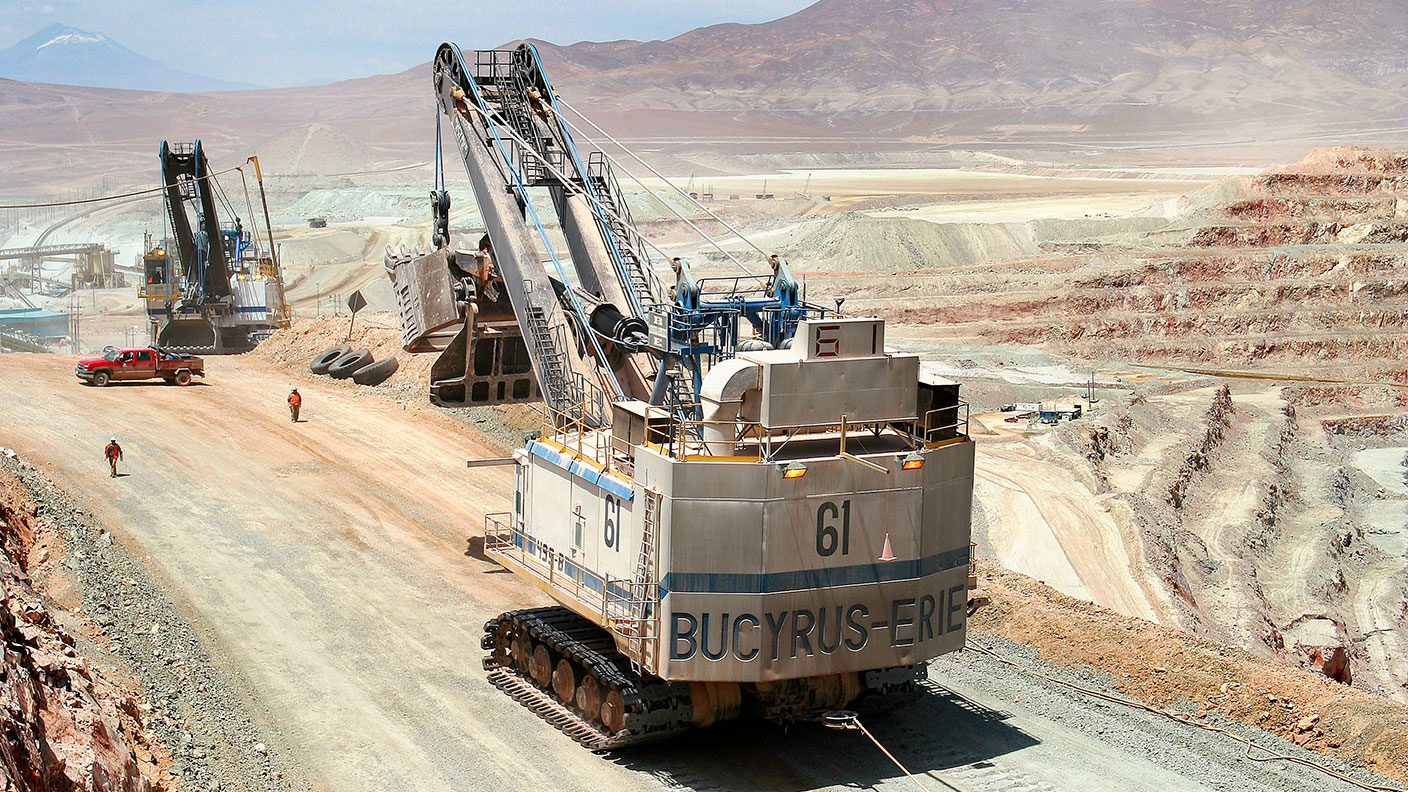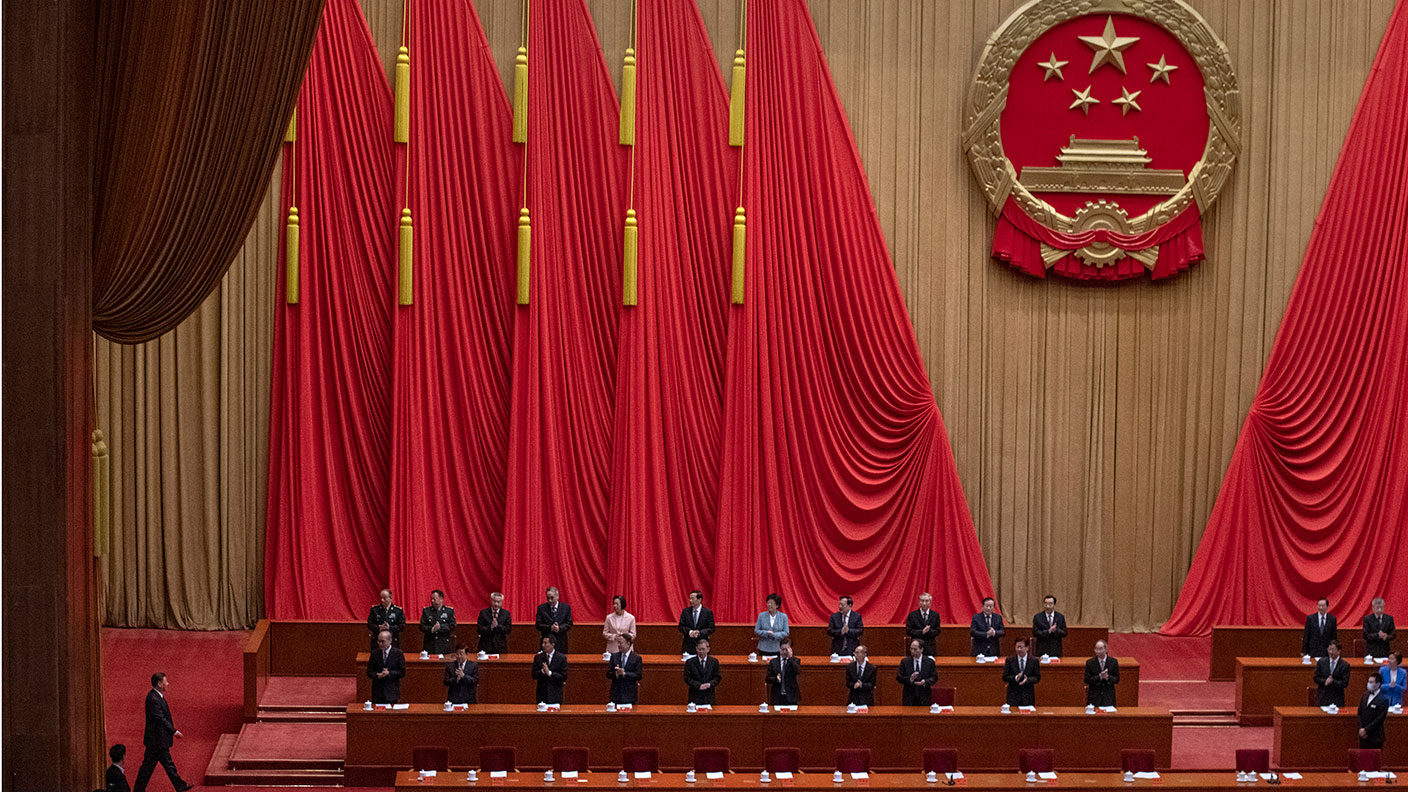Get the latest financial news, insights and expert analysis from our award-winning MoneyWeek team, to help you understand what really matters when it comes to your finances.
You are now subscribed
Your newsletter sign-up was successful
Want to add more newsletters?

Twice daily
MoneyWeek
Get the latest financial news, insights and expert analysis from our award-winning MoneyWeek team, to help you understand what really matters when it comes to your finances.

Four times a week
Look After My Bills
Sign up to our free money-saving newsletter, filled with the latest news and expert advice to help you find the best tips and deals for managing your bills. Start saving today!

Investment fund Sapinda, a key shareholder in cash-strapped Petropavlovsk, has strongly denied speculation that its alternative proposal for refinancing the company is a Trojan horse for ultimately taking over the Russia-focused gold miner or snapping up its attractive assets on the cheap.
Petropavlovskmanagement's recapitalisation proposal comprises a new $100m convertible bond which bondholders have pretty much already agreed to and a 5p per share 157-for-ten rights issue. The latter, which is to be voted on next Thursday, would raise £155m ($235m) to help slash the company's $920m net debt to around $700m.
The company's chairman, Peter Hambro, along with other insiders, are personally underwriting the issue to the tune of $30m.
MoneyWeek
Subscribe to MoneyWeek today and get your first six magazine issues absolutely FREE

Sign up to Money Morning
Don't miss the latest investment and personal finances news, market analysis, plus money-saving tips with our free twice-daily newsletter
Don't miss the latest investment and personal finances news, market analysis, plus money-saving tips with our free twice-daily newsletter
In an exclusive interview with Moneyweek earlier this week, Hambro urged Petropavlovsk's army of 12,000 small shareholders 33% of the shareholder register to vote for the issue or risk seeing the company go into administration and their entire investment wiped out.
Sapinda, an Amsterdam-registered fund with a 7.8% stake in Petropavlovsk, has already said that it and other shareholders with a 10.7% holding in total intend to vote against the company's proposal, because it is too biased in favour of bondholders over shareholders.
Sapinda's alternative proposal would see it inject $100m of its own money into the company by underwriting a shareholders' rights issue.Also part of the proposal is an exchange of the current bonds into equity at a higher share price than the rights issue and the issuance of a new $100m bond.The overall impact would be to significantly lower dilution for current shareholders.
The proposal would also bring net debt down to $600m versus the $700m under Petropavlovsk's management's proposal.
What are Sapinda's true intentions with Petropavlovsk?
There has been considerable speculation that Sapinda's real aim is to take over the company or strip it of its very valuable assets at a bargain basement price.
Tim Whyte, chief investment officer of Sapinda's commodity arm rejects the accusation: "There has been a lot of misreporting and silly talk. We have no intention of taking this company over, or buying the assets out of administration, as a lot of people seem to speculating. There is no ulterior motive. Even if we wanted to do those things, the procedures would have to take place in Russia and that would be massively protracted, it could take years."
Sapinda's goal, he says, is to have "a meaningful stake in a company that is travelling in the right direction". He adds: "There is a fine line between a lot of small shareholders who don't have a voice and a large super-dominant shareholder that is so loud no else can be heard.
"Right now there is nobody who is able to articulate the concerns of the small shareholder, because the company won't listen to them as they are too small and don't have the channels or resources to go and say this [the company's refinancing proposal] is wrong. We do, we are those people. Our interests are 100% aligned with every other shareholder.
"We have come in and said: Peter, and bondholders, we know you are trying to save the company, but you are looking to sell the company at a valuation of 5p a share, $15m, which is less than the fees that are going to be charged on your proposed deal. Is this good for shareholder value? We think not.'
"Under the management's existing proposal no new money goes into the company. The reason why management are committing the $30m is that $20m will have to be found for fees. Effectively, no matter how much money shareholders put in to the company, all that money goes to bondholders. Why should any shareholder want to put money in as it stands? Bondholders will end up owning pretty much all of the company if nobody takes up their rights, and that is terrible for the shareholder structure."
As well as charging the company management's deal with bondholders as being "completely egregious", Whyte says that since its terms were revealed in December, the movement in the gold price and rouble exchange rate have significantly improved the valuation of the company yet the rights price has not been adjusted to reflect that. "Again, that is not fair".
Bondholders calling the shots
Whyte says Sapinda has not had a formal response from Petropavlovskto its proposals for a simple reason: the company's board has not been given a detailed run through the plans.
He explains why: "The reason we haven't given the board the details is because the company's executives are not the people we ultimately need to be negotiating with. The people who actually need to agree to our proposal are the bondholders. Without the bondholders' support for the new proposal, it's irrelevant. So the hyperbole coming from the company that our proposal is crazy and so on is just hot air."
Whyte reveals that, in fact, it was the advisers to the company, Bank of America Merrill Lynch, who told Sapinda to push ahead and try and get an agreement with the bondholders directly: "If we were to go and agree something with the board, the board would only have to go and agree it with the bondholders, so we are just going straight to bondholders. The company's advisers have told us to do this. We have been taking calls directly from bondholders, we are dealing with them directly."
Yesterday, reports emerged that Russian state-controlled bank VTB, which is owed $225m by Petropavlovsk, is supporting Sapinda's proposal.
With the company required to payback $310m in convertible debt in March, the management has stressed the urgent need for shareholders and bondholders to vote in favour of its recapitalisation plan. Sapinda, however, has requested a delay to the extraordinary general meeting (EGM) next Thursday, so that it can work with the board to finalise its alternative plan: "The bondholders we have spoken to don't seem to be opposed to extending the bond maturity date, it's already been done once. It's within the company's power to postpone or adjourn the EGM.
"I think in an environment where we are have a real proposal that we are discussing with bondholders, senior lenders, banks it would be completely remiss of the board to not delay the EGM.
"We are exercising our rights as shareholders the way this is being portrayed [in the press] is that if this goes down, it's all Sapinda's fault. But I think where we are going it's quite clear: we have a proposal, we have a lot of support. If Peter [Hambro] decides to move ahead the way he wants to, and the company goes down, it will be his fault and it will be the bondholders' fault. It will not be ours."
Whyte insists that if Sapinda is successful with its proposals, it will be committed to working constructively with the company thereafter. "We are serious investors, we want to help ensure the capital and shareholder structure is healthy, strengthen the board with strong Russian experience, strong gold mining experience it's not about putting our own guys in. We are not going to have, or intend to acquire, a significant position our intention is not to take over the company.
"It is in nobody's interest, lenders or bondholders, least of all retail shareholders, to see this company go into administration, which is why we have been in touch with senior lenders. Bondholders will have zero recovery in event of bankruptcy, so therefore, it is in their interests to negotiate with us, or talk with us, because any deal we do will put the company on an even keel after this transaction. That is super-important for people to understand. If we don't get it on an even keel, I fear we will back to the same situation in nine to 12 months [because of further liquidity events].
"We don't want this company to go into administration, but we are not going to accept a deal that is so unfair and egregious, which basically hands over the entire company to bondholders at a price that is wholly unfair. It's not going to happen. We need this company to make it so shareholders can make a bit of money out of it for a change."
At lunchtime, Petropavlovsk(LSE: POG) shares were up by 4% or 0.66p to 17.16p, valuing the company at £34.8m. Having risen to the dizzy heights of 1,365p in April 2010, the company's share price has slumped nearly 100%.
Get the latest financial news, insights and expert analysis from our award-winning MoneyWeek team, to help you understand what really matters when it comes to your finances.
Kam is a former deputy editor at Hemscott Invest and online editor, City A.M and he was also previously the Digital Editor at IFA Magazine. Kam is currently a senior journalist at The Global Treasurer and contributes to MoneyWeek. Kam shares expertise on the FTSE 100, investing and global stocks.
-
 Average UK house price reaches £300,000 for first time, Halifax says
Average UK house price reaches £300,000 for first time, Halifax saysWhile the average house price has topped £300k, regional disparities still remain, Halifax finds.
-
 Barings Emerging Europe trust bounces back from Russia woes
Barings Emerging Europe trust bounces back from Russia woesBarings Emerging Europe trust has added the Middle East and Africa to its mandate, delivering a strong recovery, says Max King
-
 These 2 stocks are set to soar
These 2 stocks are set to soarTips The returns from these two aluminium and tin stocks could be spectacular when the commodity cycle turns says David J Stevenson.
-
 The best ways to buy strategic metals
The best ways to buy strategic metalsTips Weaker prices for strategic metals in the alternative-energy sector are an investment opportunity, says David Stevenson. Here, he picks some of the best ways to buy in.
-
 A lesson for investors from a ill-fated silver mine
A lesson for investors from a ill-fated silver mineAnalysis Mining methods may have changed since the industry’s early days, but the business hasn’t – digging ore from the ground and selling it at a profit. The trouble is, says Dominic Frisby, the scams haven't changed either.
-
 The natural resources industry is in a tight spot – which is bad news for the rest of us
The natural resources industry is in a tight spot – which is bad news for the rest of usOpinion The natural resources industry is in a bind. We need it to produce more energy and metals, but it has been starved of investment, plagued by supply chain issues, and hobbled by red tape. That’s bad news for everyone, says Dominic Frisby.
-
 How to invest in the copper boom
How to invest in the copper boomTips The price of copper has slipped recently. But that’s temporary – the long-term outlook is very bullish, says Dominic Frisby. Here, he explains the best ways to invest in copper.
-
 Why investors should consider adding Glencore to their portfolios
Why investors should consider adding Glencore to their portfoliosTips Commodities giant Glencore is well placed to capitalise on rising commodity prices and supply chain disruption, says Rupert Hargreaves. Here’s why you should consider buying Glencore shares.
-
 How to invest in the multi-decade boom in industrial metals
How to invest in the multi-decade boom in industrial metalsTips The price of key industrial metals has already begun to rise. The renewable energy transition will take them higher, says David Stevenson. Here's how to profit.
-
 Avoid China’s stockmarket – here’s what to invest in instead
Avoid China’s stockmarket – here’s what to invest in insteadOpinion China’s stockmarket is not a good place for investors to be. But you can't just ignore the world's second-largest economy, says Dominic Frisby. Here, he picks an alternative China play.

